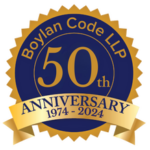By James E. Metzler, Partner
Boylan Code, LLP
In a recent decision, Tsolis v. Wolff, 2008 WL 382345, a divided (4-3) New York Court of Appeals held that members of a limited liability company (LLC) may bring derivative suits on the LLC’s behalf, even though there is no provision governing such suits in the Limited Liability Company Law (LLCL) passed in 1994. The decision was all the more surprising coming from what is regarded as a conservative Court in a state trying hard to improve its image as business-friendly, which this decision arguably is not. However, it is debatable whether the Court made new law or simply applied old law to a new circumstance.
This expansion of the rights of LLC members was done by the Court with the knowledge of the legislative history of the LLCL that included a provision for derivative suits in the draft version, but was left out of the final bill. Conventionally, this omission would indicate a legislative intent to exclude derivative suits against an LLC. However, the Court saw it differently, applying a rationale that began with an examination of the creation of derivative suits against corporations as a common law right.
The Court noted that the derivative suit has been part of the general corporate law since at least 1832, and was not a statutory right, but a creation of case law in Robinson v. Smith, 3 Paige Ch 222. That Court found it necessary to create a remedy when there was none by statute and the corporation had betrayed its duty to the shareholders. The Court found the shareholder akin to a beneficiary of a trust, who by law could bring a suit on behalf of a trust when a faithless trustee refused to do so. In the elegant language of another era the Court held that “[N]o injury the stockholders may sustain by a fraudulent breach of trust can, upon general principles of equity, be suffered to pass without a remedy.”
Eventually, today’s Court noted, that common law right of corporate shareholders was codified in New York Business Corporation Law Section 626(a). The process repeated itself with the creation of limited partnerships. There was no initial statutory provision for derivative suits against that entity, but again, the Courts (this time the Second Circuit in Klebanow v. NY Produce Exch., 344 F. 2d 294 (1965)) found that the absence of a statutory derivative suit right did not prevent the application of general principles of equity to find that right existed. Afterwards, Partnership Law Section 115-a [1] provided for the right.
It was not automatic, however, that the same fate would apply to LLCs. First, a number of courts had held there was no derivative remedy for LLC members. Second, since the remedy had been in the draft LLCL, but was omitted from the final version, the reasonable inference was that the Legislature intended no such remedy. Yet, for a Court bent on applying equity, neither reason proved to be an obstacle. The Court found that the mere omission of a remedy from the statute was trumped by the fact that the legislative history did not express any wish to actually eliminate derivative suits against an LLC. In language less prosaic than its 1832 predecessor, but no less practical in searching for the right result, the Court stated that “[S]ince the Legislature did not intend to give corporate fiduciaries a license to steal, a substitute remedy must be devised.”
Is this a “liberal” court making new law, or a “conservative” court sticking to precedent? Will the Legislature follow suit again and amend the LLCL to be in line with the Court, as it did with the other statutes? If so, then the next wish is that the Legislature provide for the process for bringing a derivative suit against an LLC, because in applying its sensitivities of equitable principles to find a remedy, the Court did not suggest a process, which undoubtedly leaves the door open for yet more litigation to resolve that issue. Is there another rabbit in the hat?
James Metzler is a Partner at Boylan Code, LLP, and serves as Chair of the firm’s Litigation Group. He concentrates his practice on commercial litigation, with particular emphasis on intellectual property disputes. For more information, please call (585) 232-5300 or visit www.boylancode.com.


